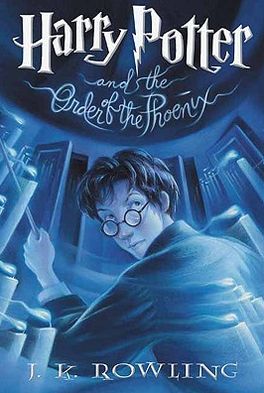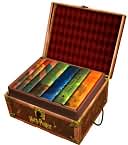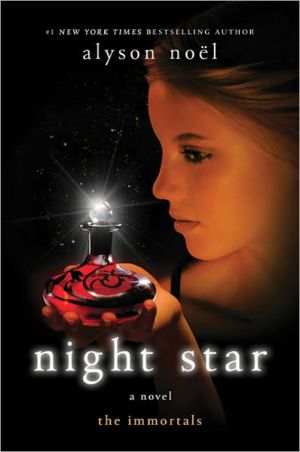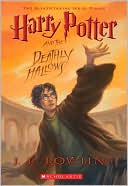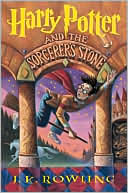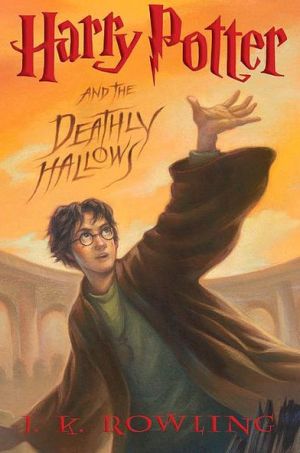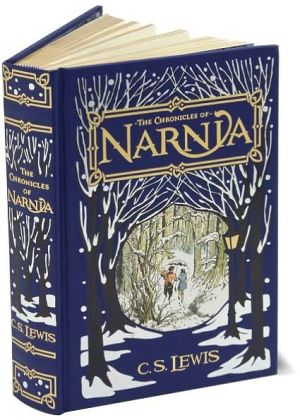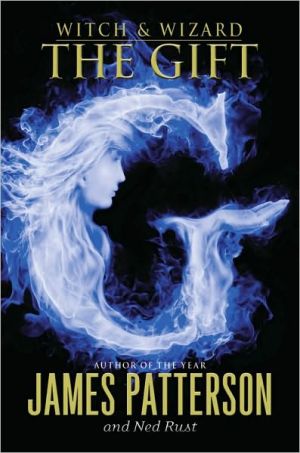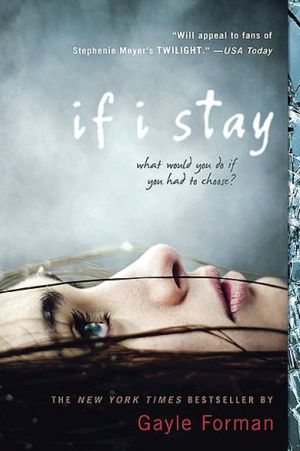Harry Potter and the Order of the Phoenix (Harry Potter #5)
As Harry enters his fifth year at wizard school, it seems the bonds "of friendship and trust" have never been more sorely tested. Lord Voldemort's rise has opened a rift in the wizarding world between those who believe the truth about his return, and those who prefer to believe it's all madness and lies -- just more trouble from Harry Potter.\ Add this to a host of other worries for Harry...\ \ \ A Defense Against the Dark Arts teacher with a personality like poisoned honey\ \ A venomous,...
Search in google:
The book that took the world by storm....In his fifth year at Hogwart's, Harry faces challenges at every turn, from the dark threat of He-Who-Must-Not-Be- Named and the unreliability of the government of the magical world to the rise of Ron Weasley as the keeper of the Gryffindor Quidditch Team. Along the way he learns about the strength of his friends, the fierceness of his enemies, and the meaning of sacrifice.The Washington PostGo read Harry Potter and the Order of the Phoenix for the other main reason to love the series: their sheer comic exuberance even in the midst of high drama. Kids, of course, would mention this first. Jokes, gags and memorable put-downs pop up on nearly every page … Sometimes it seems we adult critics are so quick to take Harry Potter seriously (whether we're looking to praise or censure) that we forget how cheerful Rowling has been throughout this whole amazing, death-haunted enterprise. — Elizabeth Ward
\ From Barnes & NobleThe fifth hefty installment in J. K. Rowling's renowned Harry Potter series takes a uniquely psychological dark turn, putting the boy wizard at odds with his own identity and friendships as he continues to fight He-Who-Must-Not-Be-Named. Now 15 years old, with four Voldemort battles under his belt, Harry is frustrated with the growing public skepticism regarding the Dark Lord's return. Unfortunately, the Ministry of Magic is also voicing its doubts, and all of Hogwarts comes under the watchful eye of an oppressive Ministry representative. Despite the additional problems of looming O.W.L. exams and Hagrid's inexplicable absence, Harry's main preoccupation is his vivid dreams, which take him to places -- and make him witness events -- that horrify and intrigue him. These dreams provide a shocking clue to his very existence, and when eventually they lead Harry to confrontation, the young wizard must cope with a tragic death and a telling prophecy about his future. Intricate in plot, infused with tension, and deeply fulfilling on every level, Rowling's continuation will leave fans open-mouthed and breathlessly anticipating what's to come.\ \ \ \ \ The Washington PostGo read Harry Potter and the Order of the Phoenix for the other main reason to love the series: their sheer comic exuberance even in the midst of high drama. Kids, of course, would mention this first. Jokes, gags and memorable put-downs pop up on nearly every page … Sometimes it seems we adult critics are so quick to take Harry Potter seriously (whether we're looking to praise or censure) that we forget how cheerful Rowling has been throughout this whole amazing, death-haunted enterprise. — Elizabeth Ward\ \ \ The Denver PostThe stakes, both for Harry and the reader, grow with each succeeding work in the series. Rowling's first novel, Harry Potter and the Sorcerer's Stone, topped the best-seller charts by grabbing both children and adults with a fast-paced story peopled by intriguing characters, set in a clearly imagined magical world. The legend has grown with each succeeding volume, not because she's written to a formula but because she continues to deliver the same combination of enticing elements without allowing them to become predictable. — Robin Videmos\ \ \ \ \ The Los Angeles TimesIn fleshing out her plot, Rowling devotes considerable attention to such coming-of-age aspects of Harry's personality, making him a richer and more psychologically complex character than ever before. There's no doubt that Harry is growing up, and the process isn't always pretty, although he remains wonderfully appealing and, when necessary, heroic. — Michael Cart\ \ \ \ \ Time MagazineJust when we might have expected author J.K. Rowling's considerable imaginative energies to flag -- this is the fifth book of a projected seven-volume series -- she has hit peak form and is gaining speed. — Lev Grossman\ \ \ \ \ USA TodayA very wise decision, J.K. Rowling, to allow three years to pass before publishing Harry Potter and the Order of the Phoenix, the fifth book in your global sensation of a series. The fever-pitched anticipation, the media frenzy, the pilfered books, the leaked details. The book richly deserves the hype. — Deirdre Donahue\ \ \ \ \ The New York TimesA considerably darker, more psychological book than its predecessors, Harry Potter and the Order of the Phoenix occupies the same emotional and storytelling place in the Potter series as "The Empire Strikes Back" held in the first "Star Wars" trilogy. It provides a sort of fulcrum for the series, marking Harry's emergence from boyhood, and his newfound knowledge that an ancient prophecy holds the secret to Voldemort's obsession with him and his family. — Michiku Kakutani\ \ \ \ \ Publishers WeeklyDale again takes the reins as nimble voice master and gallops away with a splendid performance of Rowling's fifth tome about the beloved boy wizard. Full credit is due Dale for creating-and keeping track of-an enormous cast (134, to be precise) of distinct voices; he achieves impressive continuity of character from one novel to the next. But perhaps most notable here is Dale's development of protagonist Harry's evolution from wide-eyed, affable boy to an often angry and disillusioned teenager. Obviously at home in Rowling's world, Dale effortlessly follows the story into darker and more complex waters. Plot turns include further intrigue amongst the wizard hierarchy, the arrival of a new, suspect Defense of the Dark Arts professor, and the main characters' navigation through increasing social and academic pressures. Though Harry, Ron and Hermione are gradually sounding a bit older, and inevitably wiser, Dale keeps their cores intact, so as not to lose listeners along the way. Ages 9-up. Simultaneous release with the Scholastic/Levine hardcover. (June) Copyright 2003 Reed Business Information.\ \ \ \ \ From The CriticsThis is the fifth book of the Harry Potter series and picks up the story where the fourth left off with the return of Lord Voldemort. In this story, Harry, Dumbledore, and his group, the Order of the Phoenix are trying to warn the wizarding community of the danger. They are hampered by the fact that the Ministry of Magic refuses to believe that the dark lord has returned and tries to discredit Harry and his friends. Harry still manages to return to Hogwarts and finish his fifth year, but the Ministry's representative, Dolores Umbridge, is now closely watching the school. As the ministry tries to take control of Hogwarts, Harry, Ron, and Hermione try to find ways to learn the skills they need to survive and to uncover why Harry is having dreams of Lord Voldemort. Although this book is fairly long, the story is fast paced. Each of the characters is starting to develop to full potential. Motivated by the oppression of the Ministry and the threat of Voldemort, the characters face a variety of challenges and manage to prove themselves. Although adult characters receive rough treatment in this book, young adults will relate to Harry's ongoing story, especially with the ending that reveals the true relationship between Harry and Lord Voldemort. 2003, Scholastic Press, 870 pp., Ages young adult. \ —Sarah Dean\ \ \ \ \ Children's LiteratureIn the fifth entry in this series, an angst-ridden Harry Potter must face new challenges and a deepening of the mystery surrounding Voldemort and the death of his parents. At the beginning of the book, the wizarding world remains divided on the question of whether or not Voldemort has regained his power. Harry finds himself unhappily spending the summer at Privet Drive with his annoying aunt and uncle, cut off from all communication with his friends. After he is forced to fight off two Dementors attacking him and his cousin Dursley, he is brought to a safehouse being occupied by members of the Order of the Phoenix, a collection of witches and wizards determined to defeat Voldemort. The house belonged to Sirius Black's parents and is also home to a motley collection of rather dark creatures including an angry house elf who once belonged to Sirius's mother. These creatures, once again, demonstrate Rowlings' powerful imagination. Immediately in trouble with the Ministry for his underage use of magic in fighting off the Dementors, Harry's problems just get worse when he returns to Hogwarts. There is a new professor there, the despicable Dolores Umbridge, to whom the Ministry has given extreme powers to control the faculty and students. She clearly wants to control Harry most of all. Harry responds to many of the problems he encounters with anger, and spends a good deal of time feeling alienated and sorry for himself. This is, no doubt, a true reflection of common teen behavior, but can get rather annoying. Some readers may also be put off by Harry's romantic interest in a rather insipid fellow student. Fortunately, as the extremely exciting climax heats up, Harry seems to find his stride. Theconclusion brings just a bit more explanation from Dumbledore about Harry's past (and future), leaving readers primed and eager for the next offering. As Harry grows up in this story, he realizes that many of the people he most admires are less heroic than he once believed, adding a new depth to the series. Although longer, and a bit "darker" than previous volumes, younger readers will probably not be disturbed by the content. Even the death of a major character is understated. This is a thrilling read. Those who enjoyed the previous books are not likely to be disappointed, and Rowling will probably add even more Potter fans with the publication of this volume. 2003, Scholastic Press, Ages 9 up. \ — Leslie Rounds\ \ \ \ \ School Library JournalGr 4 Up-Harry has just returned to Hogwarts after a lonely summer. Dumbledore is uncommunicative and most of the students seem to think Harry is either conceited or crazy for insisting that Voldemort is back and as evil as ever. Angry, scared, and unable to confide in his godfather, Sirius, the teen wizard lashes out at his friends and enemies alike. The head of the Ministry of Magic is determined to discredit Dumbledore and undermine his leadership of Hogwarts, and he appoints nasty, pink-cardigan-clad Professor Umbridge as the new Defense Against the Dark Arts teacher and High Inquisitor of the school, bringing misery upon staff and students alike. This bureaucratic nightmare, added to Harry's certain knowledge that Voldemort is becoming more powerful, creates a desperate, Kafkaesque feeling during Harry's fifth year at Hogwarts. The adults all seem evil, misguided, or simply powerless, so the students must take matters into their own hands. Harry's confusion about his godfather and father, and his apparent rejection by Dumbledore make him question his own motives and the condition of his soul. Also, Harry is now 15, and the hormones are beginning to kick in. There are a lot of secret doings, a little romance, and very little Quidditch or Hagrid (more reasons for Harry's gloom), but the power of this book comes from the young magician's struggles with his emotions and identity. Particularly moving is the unveiling, after a final devastating tragedy, of Dumbledore's very strong feelings of attachment and responsibility toward Harry. Children will enjoy the magic and the Hogwarts mystique, and young adult readers will find a rich and compelling coming-of-age story as well.-Eva Mitnick, Los Angeles Public Library Copyright 2003 Reed Business Information.\ \ \ \ \ From the PublisherKirkus Reviews July 15th, 2003\ The Potternaut rolls on, picking up more size than speed but propelling 15-year-old Harry through more hard tests of character and magical ability. Rowling again displays her ability to create both likable and genuinely scary characters--most notable among the latter being a pair of Dementors who accost Harry in a dark alley in the opening chapter. Even more horrible, Ministry of Magic functionary Dolores Umbridge descends upon Hogwarts with a tinkly laugh, a taste in office decor that runs to kitten paintings, and the authority, soon exercised, to torture students, kick Harry off the Quidditch team, fire teachers, and even to challenge Dumbledore himself. Afflicted with sudden fits of adolescent rage, Harry also has worries, from upcoming exams and recurrent eerie dreams to the steadfast refusal of the Magical World's bureaucracy to believe that Voldemort has returned. Steadfast allies remain, including Hermione, whose role here is largely limited to Chief Explainer, and a ragtag secret order of adults formed to protect him from dangers, which they characteristically keep to themselves until he finds out about them the hard way. Constructed, like GOBLET OF FIRE, of multiple, weakly connected plot lines and rousing, often hilarious set pieces, all set against a richly imagined backdrop, this involves its characters once again in plenty of adventures while moving them a step closer to maturity. And it's still impossible to predict how it's all going to turn out. (Fiction. 12-15)\ Bulletin of the Center for Children's Books September 2003\ Harry Potter's latest adventure reveals an admirable hero somewhat the worse for wear: his grief at the death of Cedric, his fear of (and connection to) the evil Lord Voldemort, and his emotional distance from Professor Dumbledore combine to make Harry a bit short-tempered, a bit short-sighted, and a bit more recognizably human. Rowling eases readers back into Harry's world-and-Harry's precarious existence-with nary a ripple: the suburban peace of the Dursleys' manicured lives is shattered by the intrusion of dementors, sent by a rogue in the Ministry of Magic and seeking to do Harry serious injury. A wizard rescue party retrieves Harry from the world of Muggles and sets him down amidst the Order of the Phoenix, a secret society that plots Voldemort's final downfall. With an escalating love life, academic complications at school, and a Ministry of Magic determined to ignore the obvious, Harry is in an adolescent uproar. Revelations about Sirius Black, Professor Snape, and Harry's late father cause the boy to question all he holds true, and his confusion clouds his judgment. A roaring set of practical jokes by Fred and George Weasley against a politically appointed, obnoxious new professor at Hogwarts lightens the tone just in time for the Order's tragic confrontation with Voldemort and his malevolent minions. Rowling cheerfully turns her own conventions on th@ir cars, and the result is a surprising and enjoyable ride. While Harry's much-touted love interest fizzles before it fires, familiar characters achieve a bit more depth. Ginny Weasley starts to come into her own, Hermione employs a dryly wicked wit, and Dumbledore reveals, if not feet, at least a little toe of clay. It's no longer quite clear that all will work out in the end; the lines are being drawn, but, as exemplified by Percy Weasley, not everyone is on the right side. Rowling has managed to make Harry and his fate a bit less predictable, which, in the fifth of a seven-volume series, is a very good thing. JMD\ Horn Book Magazine\ (September 1, 2003; 0-439-35806-X)\ (Intermediate, Middle School) This review is much like the proverbial tree falling in an uninhabited forest: unlikely to make a sound. But for the record, HP5 is the best in the series since Azkaban, and far superior to the turgid HP4. With Rowling once again f\ \ \
